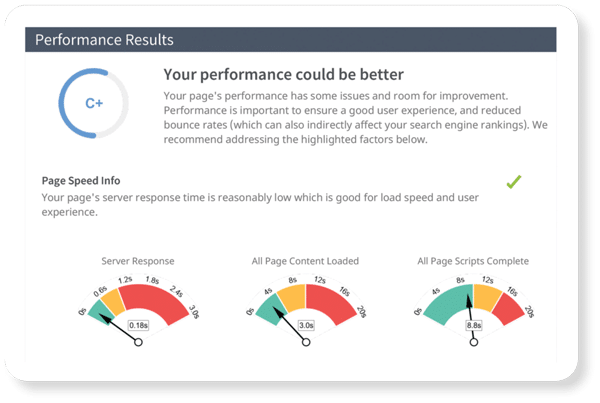Your website is the foundation of your business online. It’s where your other online strategies are driving traffic and the equivalent of your digital business card. That’s why it’s the base of our Pyramid of Success – because it’s the foundation of your marketing strategy. For medical websites, storing medical data means that security is even more important to maintain HIPAA compliance. Here’s what medical websites should do to keep their websites secure and their patient data protected.
Make sure your website security is in order.
Websites without Transport Layer Security (the encryption protocol that adds HTTPS to the beginning of a URL) are at serious risk for all kinds of cyber attacks. The information they transmit isn’t encrypted and is therefore easily accessible to anyone with the correct tools who happens to be snooping on the network. Browsers like Google Chrome will display a security warning for these types of sites, and search engines are known to suppress them in rankings pages. Any issues with your website security can wreak havoc on your business, so it’s worth making sure you’ve thought this through.
Utilize a secure hosting service.
It might be tempting to cut corners when it comes to web hosting, but reputable web hosting services are more stable, more secure, and have more sophisticated defenses in place to protect the websites that utilize them against cyber attacks. Don’t overlook the importance of their customer service team, either – if something goes wrong, you’ll need to contact them to resolve the issue and get your site back up and running.
Use stronger passwords.
Having a robust website doesn’t matter if it’s vulnerable to attacks. Utilize strong passwords for your site’s CMS, admin panel, and anything that may contain billing or patient information. Create a password that is difficult to guess, but easy to remember. It’s also very important to avoid using the same password repeatedly. If your password is lost or compromised even once, your website can become vulnerable in the future. The best passwords, according to security experts, are the random ones. Longer passwords that are a combination of upper and lower case letters, numbers, and special characters also fit the bill.
Use two-factor authentication.
This added security layer goes a long way towards protecting your website by requiring access to the physical device you are using to log in. Common examples of this include entering a code sent via a text or email to your cell phone, or a facial scan such as the FaceID technology used by iPhones. This added security is highly effective at preventing many common types of security breaches.
Back up your website.
In the event something does happen to your website, a backup is incredibly useful for getting back online quickly and with minimal inconvenience.
We Can Help
Ready to put the security of your medical website in expert hands? We’ve been building and managing medical websites for more than 20 years. Contact one of our experts for your complimentary consultation today.


